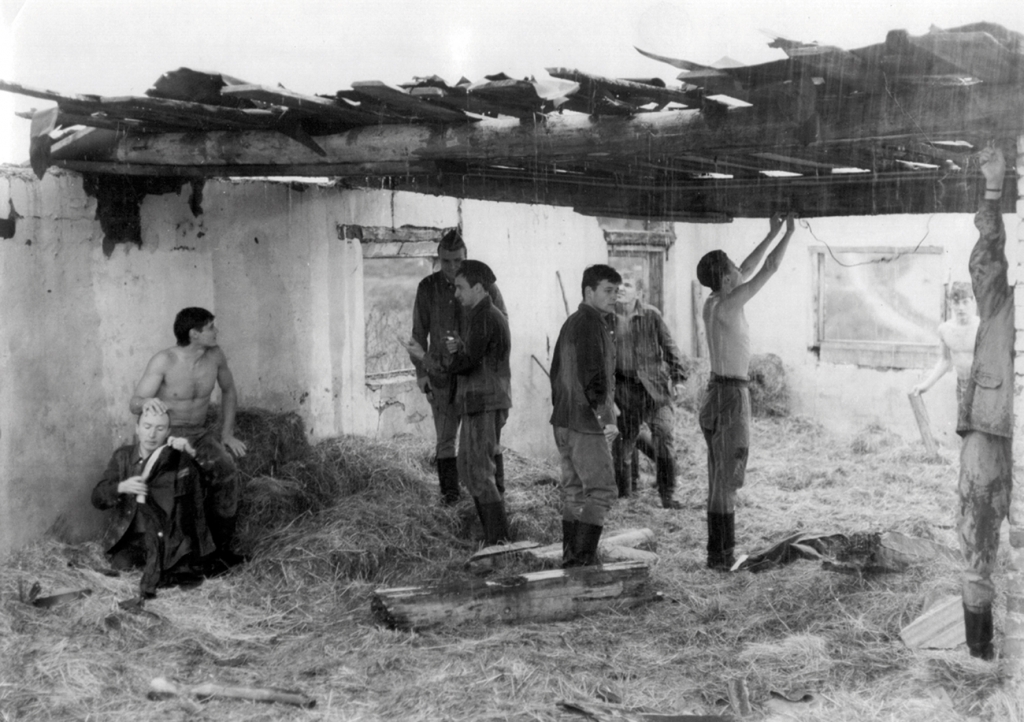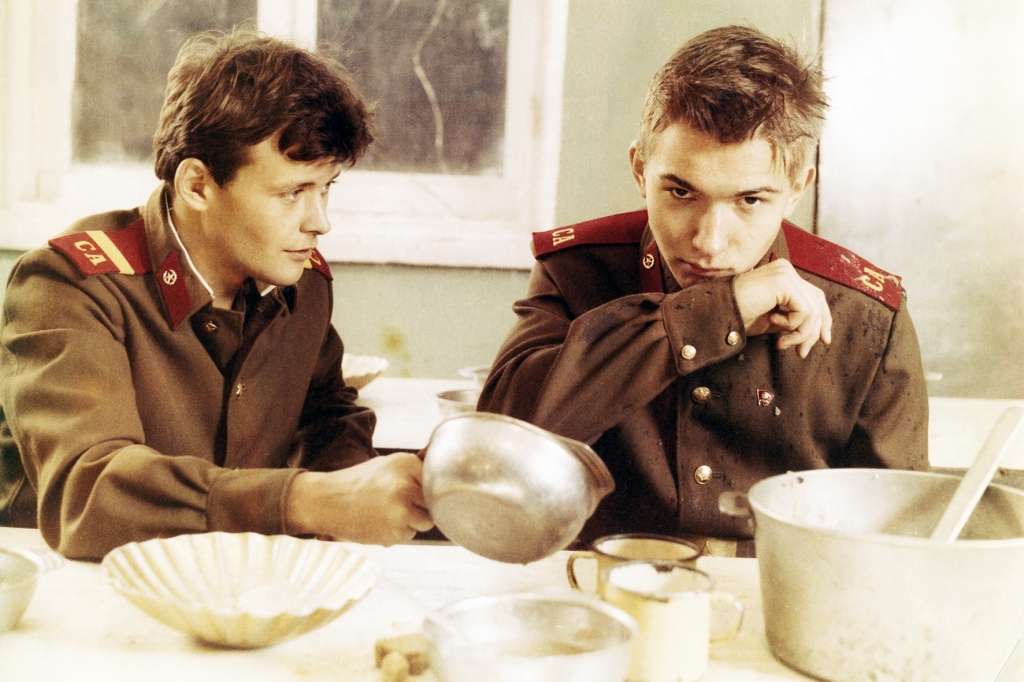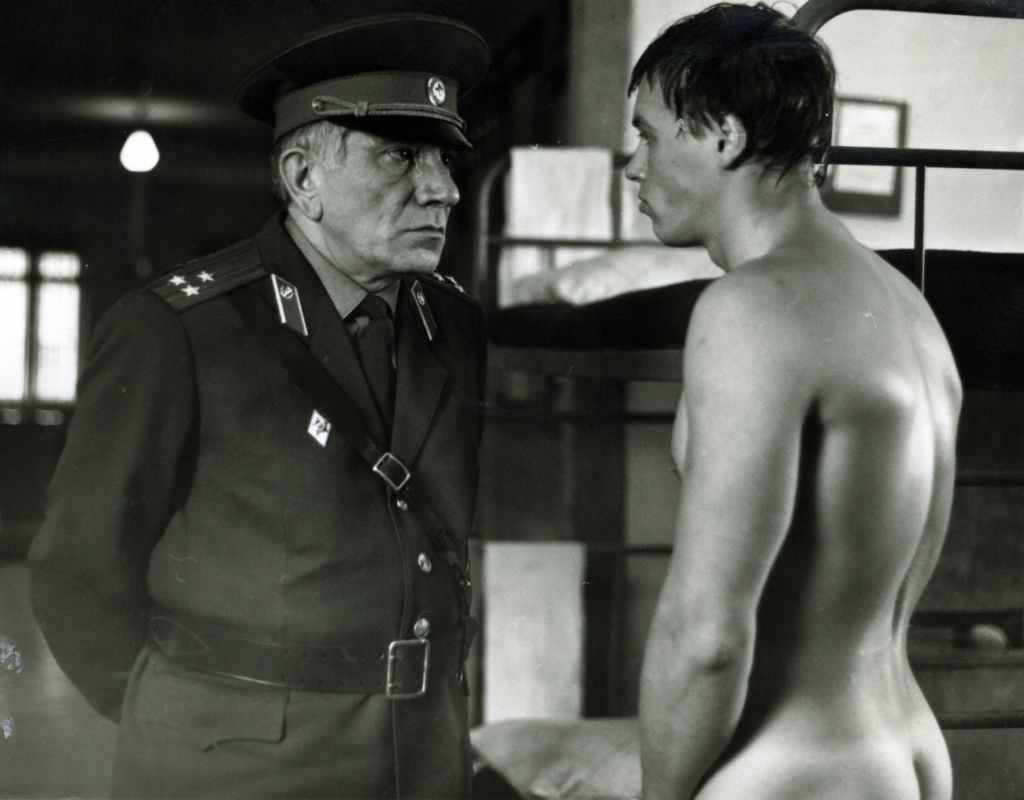Sto dnei do prikaza

Five young soldiers in the Soviet army find themselves exposed to a cycle of constant violence. Rebelling in various ways against humiliation and the assault on their dignity, they somehow manage to seize carefree moments of intimacy – even though they suspect that their struggle will be in vain and they will not survive their military service. Touching each other casually with their eyes and their bodies, they flee into silent imaginings, desperate to escape the mercilessness of a dehumanised hierarchical system which they themselves are helping to maintain. Their intimacy, sense of community and imagination helps them find the strength they need to resist the madness of manoeuvres and their barracks. Inspired by the eponymous novel by Russian author Yuri Polyakov, Erkenov homes in on a group of young men in the military and highlights the effect that their desire for each other has on their daily army life. In disturbing, dreamlike images he gives form to their loneliness, fear of death and sense of longing in a world ruled by patriarchal structures of violence.
details
-
Runtime
67.0 min -
Country
Russia -
Year of Presentation
2019 -
Year of Production
1990 -
Director
Khusein Erkenov -
Cast
Armen Daigarhanian, Lena Kondulainen, Aleksandar Chislov, Oleg Vasilkov, Vladimir Zamansky, Oleg Chusainov, Roman Grekov, Michael Solomatin, Sergei Roshenzev, Valeri Troschkin, Sergei Bystrizki -
Production Company
Gorky Film Studio -
Berlinale Section
Panorama -
Berlinale Category
pictures from the movie
Biography Khusein Erkenov
Born in 1960 in Tashkent in today's Uzbekistan. He completed his studies at the Gerasimov Institute for Cinematography in Moscow in 1988 and one year later realised his first short film, Kolya, which won several international awards. His feature film debut Sto dnei do prikaza (100 Days, Comrade Soldier) was shown in 1990 in the Panorama. In 1998 he directed the television programme Dolls. He made several films, for which he also wrote the screenplay. His film Prikazano zabyt (Ordered to Forget) about the deportation of the Chechen people under Stalin was not allowed to be shown in Russian cinemas because he was accused of falsifying history.
-Berlinale.de

